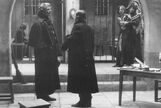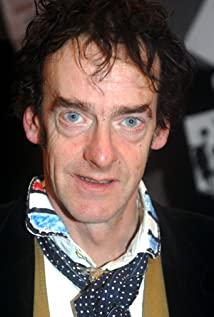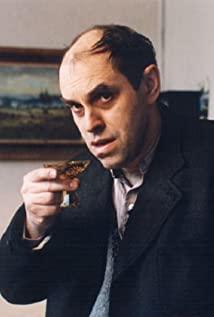film is adapted from Hugo's famous book "Les Miserables", what is misery? Is it the protagonist's ten-year prison sentence, is Fang Ting cut off his long hair to buy medicine for his daughter, or Xavi sinks in the Seine at last In fact, the most tragic thing is Sartre’s famous saying that others are hell. Because the whole novel shows the struggle between different people’s persistence and faith. Jean Valjean’s obsession with salvation and love, Javert’s obsession
with the evil of human nature. There is a phrase called the logic of survival, which is the core part of human worldview values. The logic of survival is the belief that you hold most in your heart. You believe that the world is developing and operating according to this logic. You believe in the absolute authority and unchallengability of this logic. Once you have the opportunity, you must be understood and accepted by others. The survival logic comes from experience, especially the experience of your youth, such as with your parents. Interaction, communication with others, understanding of reality, etc., survival logic is also one of the main motivations for us to become humans. We are no longer people who follow the trend. This world is no longer incomprehensible and unreasonable. This world has it. The law of operation, and this law is the belief in our hearts. And behind this logic, it may be our deepest pain.
A child who has not been loved by his parents since childhood is very likely to agree with such a logic. He is not loved, and he cannot love others. When he grows up, when he meets someone who loves him, he will doubt whether I am worthy of love. Does she really love me? He will be in such doubts. He wiped out his love, and his heart was eager for love again, longing for himself to be able to get the selfless love of his parents and lovers to save himself. A child who had been very difficult in his childhood, after experiencing the warmth and warmth of the world, he is also extremely It is possible to agree with the belief that the strong will survive and the weak will be eliminated. So in the future life we will only see competition, will only associate with people who are stronger than ourselves, despise and even hate people who are weaker than ourselves. Then he will be strong. Behind him, there is also a heart that needs warmth, because he has never tasted warmth, the blessings of friends, the teachings of teachers, the encouragement of strong people, and the support of partners.
Everyone has such a set of logic in their hearts. There are very few people who can practice and promote their beliefs with strong willpower and enthusiasm. This type of people is either a great evil or a great good. Jesus was martyred because he believed in him. You can pass on love to the world. Bill Gates founded Microsoft because he believed from an early age that he could make his software available to every computer. Hitler believed in the pure blood of the Germans and killed millions of Jews, and historically Modern and modern tyrants are all determined and practice what they believe in. In many cases, behind the grand-sounding ideas are the cruel survival logic of irrational violence. Behind the survival logic, there may be an unhealed trauma.
Look at the example in the novel. The essence of Valjean’s decades of struggle with Javert is the struggle between two beliefs. First, as a criminal, Jean Valjean was arrested for stealing silverware from the priest’s house, and then he was caught The priest exempted him, so he was grateful, and felt that he has since changed his mind and moved on to the right path. He was the most lonely child from childhood, and he was suddenly forgiven by the noble priest Christ-like mercy, and the content was unavoidably shocked by the priest's logic of existence--" I want to love you infinitely, give you infinite tolerance, and even use my sacrifice to arouse your conscience and belief in God" This religious belief captured Jean Valjean's heart. I personally think that the reason why Jean Valjean was able to fight Javert tenaciously later came from his fear of the tragic childhood experience. After experiencing the love of Christ, he discovered that he had the power to support in the world. The suffering he suffered is not his own suffering, but the suffering of human beings. He wants to pass on this selfless love to the world like Christ, thus saving others, redeeming himself, and healing wounds.
In the novel, Javert’s inner description and background explanations are very few. It is difficult to judge why he insists on believing that human nature is evil. He does not want to believe that people can redeem themselves through struggle. He believes that people cannot get rid of his destiny and commit crimes. A lifetime is a crime. I guess that he might have a vicious father, coupled with his cold and repressive character, shows that he has been abused since childhood, because he fully expresses his emotions will be scolded by his parents, and his expectations of his father have changed time and time again to the last despair. , Gave him the unchangeable faith of sinners. This is why he finally chose to commit suicide. Because sinners cannot be changed, his father was destined to be so mean to him, and it was his destiny to accept this suffering. Through repeated tolerance and indisputable kindness, Jean Valjean touched his deepest despair, that people can be changed, but this did not happen to me. I am an abandoned child. What is more painful than physical injury is the collapse of inner beliefs, and what is more painful than the collapse of inner beliefs is irretrievable despair. To say that the saddest thing in the miserable world is actually Javert. He did not have the love of Christ, his beliefs were corroded bit by bit by Jean Valjean, and finally committed suicide in despair.
Javert and Jean Valjean very well confirmed Hegel’s dialectics of desire. The desire of desire. The reason why people are human is that they can desire a desire itself, not a specific thing, and people must be in denying the desires of others. Come affirm yourself. The two contradictory people, such as Jean Valjean and Javert, are excellent manifestations. Both are clinging to their own desires (beliefs), and both see their own shadows in the other, and both believe that people can be redeemed and cannot be redeemed. The opposition of Javert also exists in Javert’s heart expecting to be redeemed, and Jean Valjean’s heart is united with the fear of irredeemability.
View more about Les Misérables reviews











